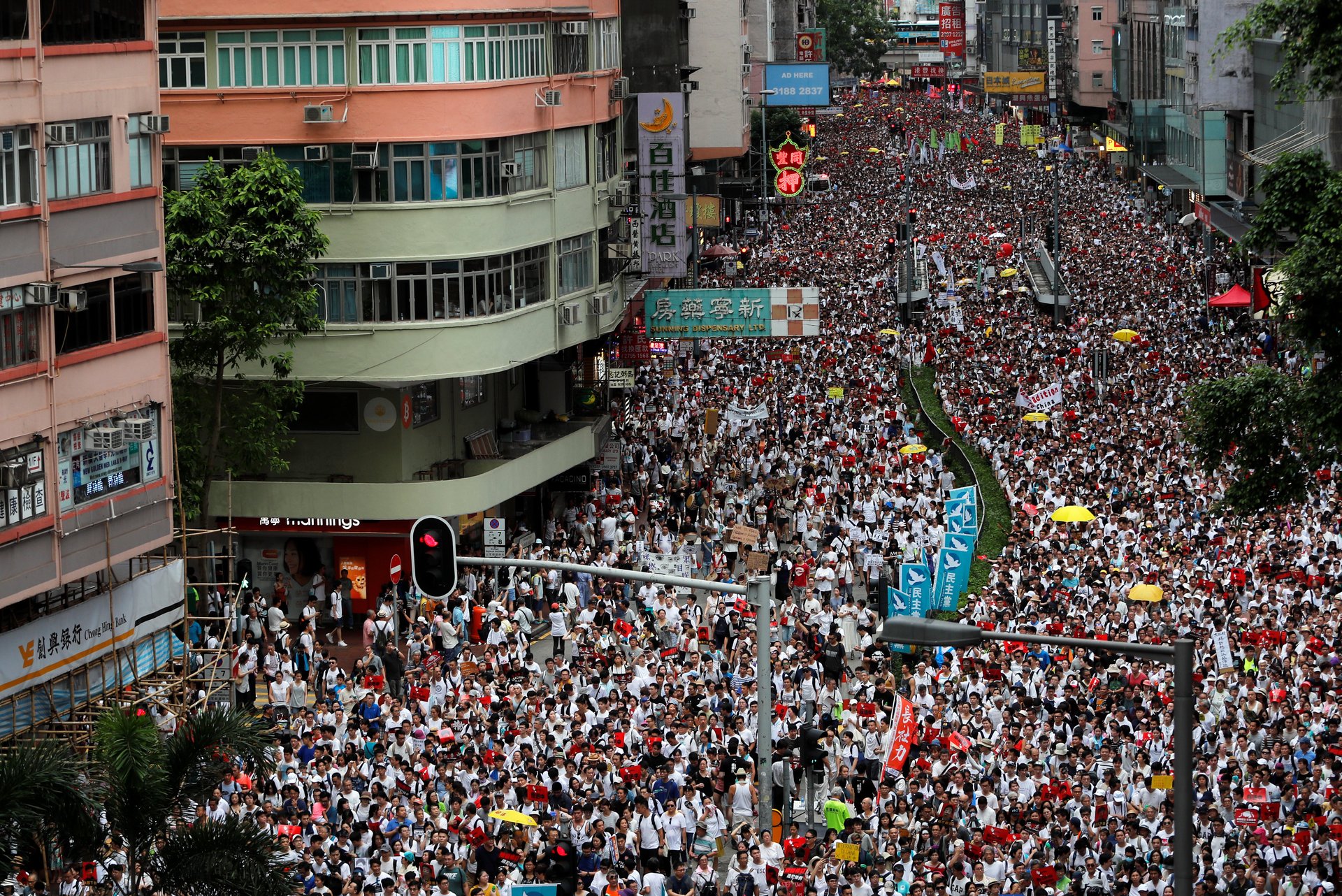Hong Kong’s government has a message for one million protesters: We can’t hear you
No, no, and no, was the resoundingly clear message from an estimated one million protesters yesterday in Hong Kong as they demonstrated against a proposed law that would allow the city, for the first time, to extradite suspects to mainland China.


No, no, and no, was the resoundingly clear message from an estimated one million protesters yesterday in Hong Kong as they demonstrated against a proposed law that would allow the city, for the first time, to extradite suspects to mainland China.
Despite that unified message, the government response from chief executive Carrie Lam is to defiantly press ahead with the bill, which will come up for a second reading in the legislature on Wednesday and likely a final vote by mid-July.
“There is very little merit to be gained to delay the bill,” Lam said at a press conference this morning (June 10). “It’ll just cause more anxiety” and divisiveness in society.
The extradition bill has already sparked widespread fear and anger among the city’s populace. Opponents say that it will mark the death of Hong Kong as they know it, destroying its judicial and legal independence and erasing its much-prized civil liberties. But for months, the government has insisted that the extradition law is urgently needed to ensure that Hong Kong does not become a haven for fugitives. On Monday, a day after a massive, largely peaceful demonstration that saw some tense confrontations overnight between police and protesters, the government repeated that line and refused to budge.
“Hong Kong has to move on,” Lam said.
Yet the question of where Hong Kong will go from here and what its future holds is unclear. And it is that uncertainty that citizens fear most.
Recent years have seen a drip-drip erosion of freedoms as Beijing has increasingly tightened its grip, manifested in moves by the local government that included the banning of a political party and the de facto expulsion of a Financial Times journalist. Leaders of the 2014 pro-democracy protests have also been prosecuted, often under little-used colonial-era provisions.
On Monday, however, Lam dismissed allegations that rights in the city were being chipped away, and pointed to the million-strong crowd as proof of civil liberties being “as robust as ever.” She also said that “it’s not Beijing” behind the proposal. “We were doing it, and are still doing it, out of our clear conscience.”
It is clear that China urgently wants the bill passed, however. A top Beijing official urged local politicians last month to back the bill. State-run China Daily claimed that Sunday’s anti-extradition protesters were, in fact, outnumbered by supporters of the bill. And an editorial in Global Times, China’s belligerent state tabloid, made the tired accusation of “foreign forces” wreaking havoc in Hong Kong.
Philip Dykes, chairman of the council of the Hong Kong Bar Association, said China has been trying to secure extradition arrangements with more jurisdictions than it has at present. “It might be a case of the PRC [People’s Republic of China] saying if we can’t have an agreement with Hong Kong, how can we have one with Canada or Australia,” said Dykes, who was stationed at Admiralty yesterday observing the march.
Lam insisted that the government has listened “attentively and very humbly” to popular opinion. The government has made some rounds of concessions in response to public pushback, including removing nine types of commercial crimes from the list of extraditable offences at the urging of the business community. Lam sought to reassure the public today by pledging that human rights protections in the bill would have “legal binding effect,” and that a “solemn policy statement” would be made by the secretary of security ahead of Wednesday’s bill hearing.